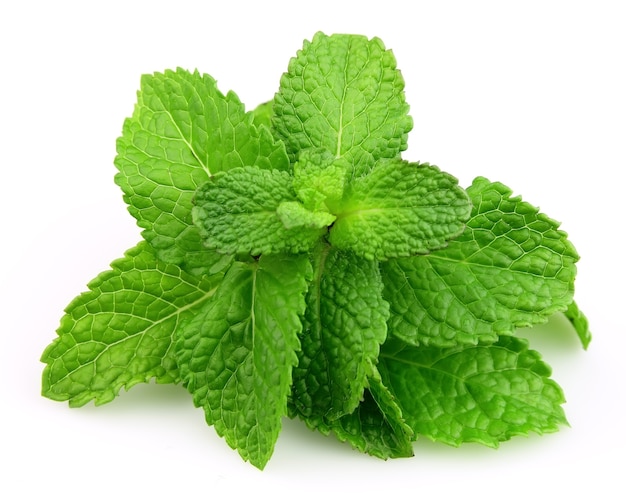
Peppermint Oil: What Is It?
Peppermint oil is derived from Mentha x piperita, also known as Mentha balsamea, a hybrid plant of spearmint and watermint. Gardeners around the world cultivate peppermint, and it can sometimes be found growing in the wild. Commercially, the essential oil is typically extracted through the distillation of the plant’s leaves and stems.
The primary components of peppermint oil are menthol (41%) and menthone (23%), which contribute to its distinctive flavor and cooling sensation. Additionally, it contains menthyl acetate, 1,8-cineole, limonene, beta-pinene, and beta-caryophyllene, which enhance its health benefits.
Benefits of Peppermint Oil
Peppermint oil, with its delightful taste and aroma, has been used for centuries to treat various ailments. It can be used internally to aid digestion and fight harmful bacteria, or externally to ease respiratory issues, soothe aches and pains, and more.
Relieves Stress
Peppermint oil is an excellent natural remedy for relieving stress, improving mood, and combating mental exhaustion. It helps restore focus and balance while soothing anxiety and restlessness.
Soothes Headaches
Menthol, the active ingredient in peppermint oil, relaxes muscles and alleviates discomfort, providing relief from headaches. When diluted and applied to the temples, it can soothe headaches and migraines by inhibiting muscle contractions and stimulating blood flow.
Boosts Energy
Peppermint oil’s analgesic properties can boost energy levels, focus, and concentration. It is especially beneficial for those with chronic fatigue syndrome or ADHD. Inhaling peppermint oil before a workout can enhance performance and endurance.
Promotes Respiratory & Lung Health
Peppermint oil promotes upper respiratory health by acting as an expectorant, clearing lung and chest congestion. It is often found in lung-cleansing balms that can be rubbed on the chest to ease breathing.
Reduces Nausea & Supports Digestive Health
Menthol in peppermint oil relaxes the smooth muscles of the GI tract, aiding digestion and relieving symptoms of irritable bowel syndrome (IBS), including constipation and bloating. It can also be used with caraway oil to manage nausea.
Fights Microbes & Harmful Organisms
Peppermint oil resists bacteria and fungi, including Candida albicans. Its compounds, such as camphor, menthol, and carvacrol, deter various fungal species.
Promotes Oral Health
Peppermint oil is potent against harmful organisms that affect oral health. It can be used to freshen breath and soothe toothaches.
Top Peppermint Oil Uses
Peppermint oil can be used in various ways, both internally and externally. Its antibacterial properties make it a great cleanser for the body and home, and it can relieve ailments from bad breath to head lice.
Aromatherapy
Peppermint oil boosts energy while relaxing the senses, making it popular in aromatherapy. It can be rubbed on temples or inhaled directly, or used in a diffuser.
Breath Freshener
Adding peppermint oil to your brushing or rinsing routine can freshen your breath and clean your mouth. It’s effective after a meal or before a meeting.
Add It to Your Diet
Peppermint oil can enhance the flavor of dishes and desserts while offering health benefits. It’s more concentrated than extract, so use it sparingly.
Relieve Headaches
Peppermint oil can naturally relieve headaches and migraines by balancing sinus pressure and improving circulation. Dilute it with a carrier oil and massage onto your temples and forehead.
Boost Exercise Performance
Peppermint oil can enhance exercise performance by increasing drive and respiratory function. Add it to your diet for an energy boost before workouts.
Skincare
Peppermint oil, combined with massage oils or lotions, can soothe redness, swelling, acne, and skin irritation. It’s also effective for sunburn and itchy skin.
Nail Health
Peppermint oil promotes strong, healthy nails and can remedy fungal imbalances. It can be applied topically for nail health.
Hair Care
Peppermint oil stimulates the scalp and promotes hair growth and circulation. It can reduce dandruff and prevent hair loss.
Soothe Colic
Peppermint oil can relieve colic in babies by easing intestinal distress. Use it sparingly and consult a pediatrician first.
Natural Home Cleaner
Peppermint oil is an excellent natural disinfectant for cleaning surfaces. Its antibacterial properties and pleasant scent make it ideal for home use.
Insect & Pest Repellent
Peppermint oil is a natural insecticide effective against ants, spiders, ticks, and even mice. It can also kill and prevent head lice.
Air Freshener
Peppermint essential oil can freshen the air in your home or car, creating a rejuvenating environment. It eliminates musty odors and invigorates the space.
Peppermint Oil Safety & Side Effects
Ensure any peppermint oil you use is 100% pure, organic, and steam-distilled, with Mentha piperita listed on the label. Avoid oils premixed with alcohol and synthetic fragrances, and always dilute oils with a carrier oil to protect your skin. Large doses of peppermint may interfere with the absorption of vitamins, minerals, and medications, and it should be avoided by individuals with gallbladder disease, gallstones, chronic heartburn, or severe liver damage.
When applied to the skin, peppermint oil may cause allergic reactions. Perform a skin patch test before use. Pregnant women should exercise caution with peppermint oil, and it should not be used by children under six without consulting a healthcare provider.
Points to Remember
Peppermint oil is extracted from a hybrid plant between spearmint and watermint. It offers numerous benefits, from soothing skin and hair to repelling pests and cleaning the home. When using peppermint oil, always follow directions and dilute it properly. Consult a healthcare professional if you have any concerns about its use.



